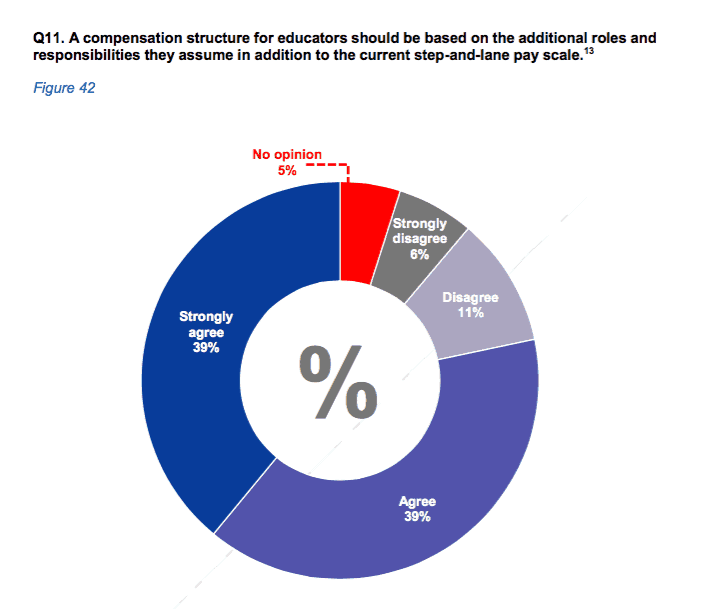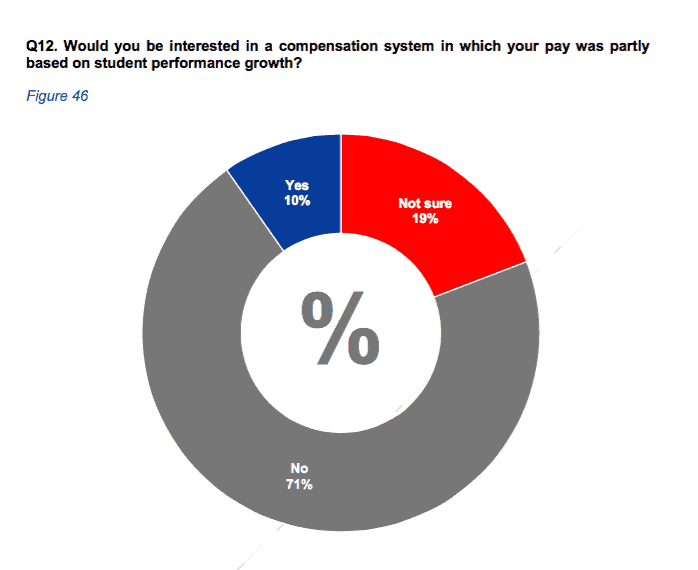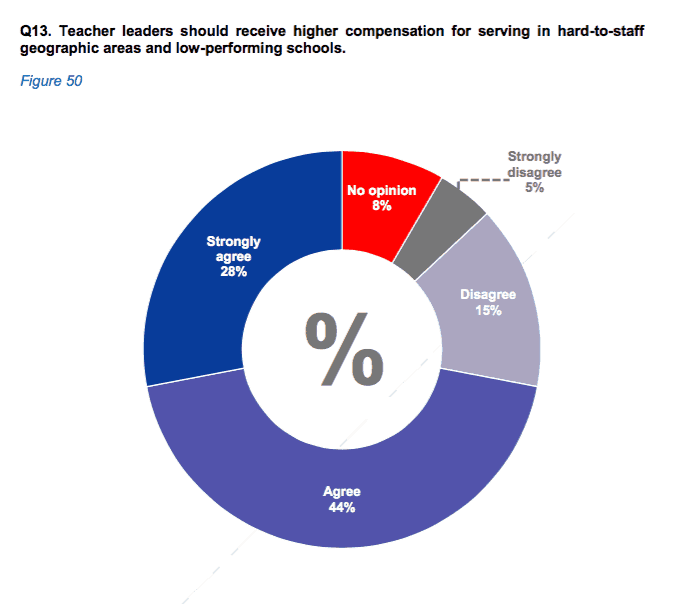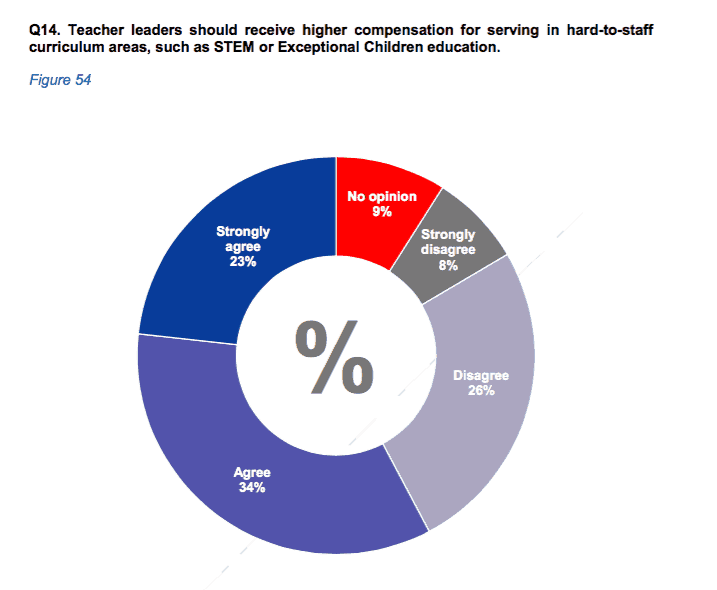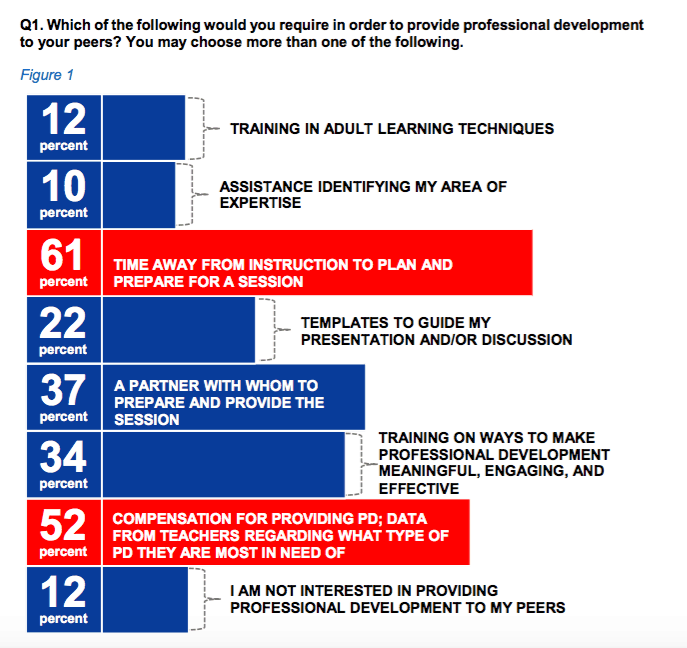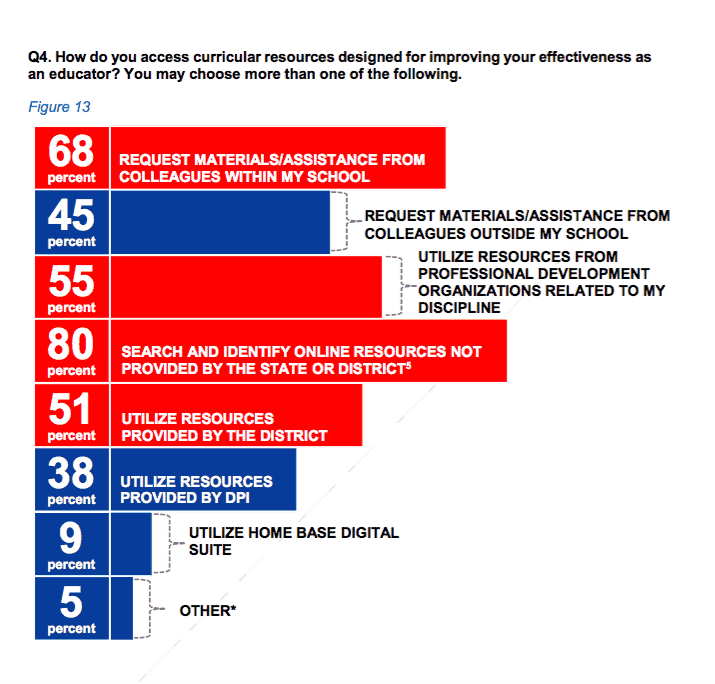

The Hope Street Group North Carolina Teacher Voice Network released its spring data report today, noting teacher perspective on topics including assessments, class size, compensation, and communication. The report is based on feedback from across the state, with survey completion by 3,754 teachers and focus group data collected from 1,876 online and 558 in-person responses.
A non-partisan organization, the Teacher Voice Network seeks to positively inform decisions made by education policymakers by providing feedback from colleagues that represents the collective and diverse opinions of educators throughout the state. Teacher Voice Network Fellows facilitate constructive teacher-led conversations around solutions that bring the most benefit to the students of North Carolina. Hope Street Group’s North Carolina Teacher Voice Network completed its first data collection in the fall of 2015, introducing itself and its network of Fellows to the state. To learn more about their past findings and the program, see EdNC’s “Teachers Shaping Policy.”
In this new spring report, accessible here, the Hope Street Group Teacher Voice Network addresses:
- Restructuring School/Calendar Schedules
- NCDPI Communication
- Curricular Resources
- Class Size
- Parent Engagement
- Assessments
- Teacher Compensation
- Supports for Working in Low-Achieving Schools
Most relevant to this week’s budget discussions, the report concluded most respondents agreed that teachers should be paid more for assuming additional roles and responsibilities, serving in hard-to-staff geographic areas and low-performing schools, or working in hard-to-staff curriculum areas. Most teachers were not interested in a compensation system where pay is partly based on student performance growth.
The report also builds on findings from the fall, showing teachers would require time away from instruction, compensation for their work, and information on what their peers need to successfully provide professional development to colleagues. In revising professional learning, especially under the Every Student Succeeds Act, we hope this information coupled with that of our fall report helps policymakers easily integrate teacher voice into their decisions.
Teachers additionally reported most frequently accessing curricular resources from internet searches or their peers. This data point, combined with the fall’s indication that 85 percent of teachers only use HomeBase to access PowerSchool, points toward opportunity for growth in district and state support of teachers through the provision of dynamic, continually updated, quality curricular resources.
Teachers also had the opportunity in focus groups to describe the differences between state, district, and classroom assessments. Preferring classroom/teacher developed assessments, teachers discussed the lack of alignment between curriculum and assessments as well as the importance of the timing of test administration and results. One teacher noted, “Classroom assessments give timely feedback which drives instruction.”
The Hope Street Group Teacher Voice Network will work with policymakers, including NCDPI and the Office of the State Board of Education, to apply these findings to upcoming policy development and implementation. To become more involved, visit their webpage and contact a Fellow near you.


